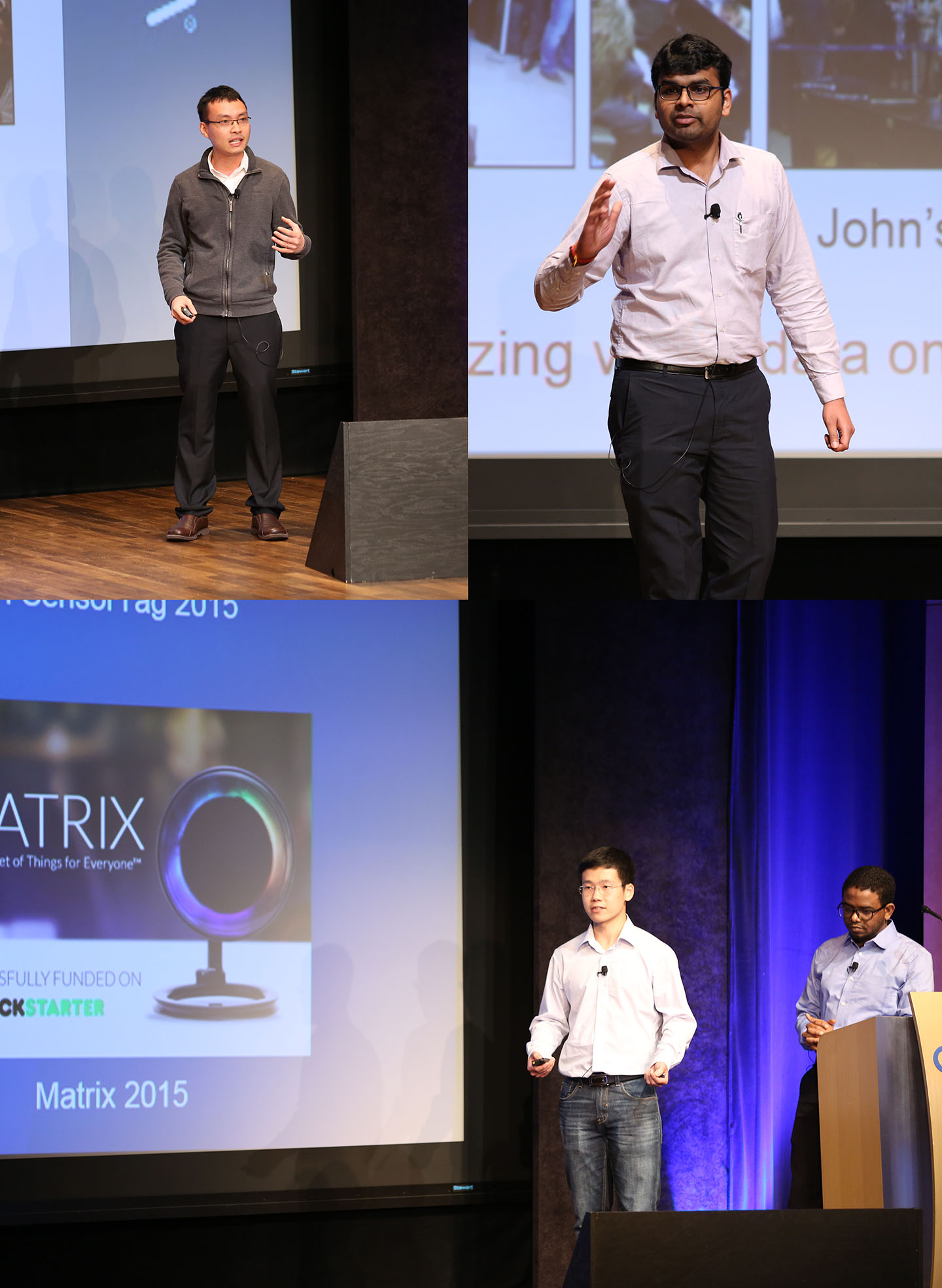Two Student Teams Win Qualcomm Innovation Fellowships
Byron SpiceWednesday, June 14, 2017Print this page.

Two teams of Ph.D. students in the School of Computer Science are among eight U.S. winners of 2017 Qualcomm Innovation Fellowships.
The team of Yang Zhang and Abdelkareem Bedri, both Ph.D. students in the Human-Computer Interaction Institute, and the team of Minh Vo and Aayush Bansal, Ph.D. students in the Robotics Institute, were selected from 116 teams at 18 schools that submitted proposals.
The Qualcomm fellowship program is unusual because it requires pairs of students to submit proposals. The company says this approach reflects its core values of innovation, execution and partnership. Each winning team receives $100,000 and will be mentored by Qualcomm engineers.
Zhang, a second-year Ph.D. student in the HCII, and Bedri, a first-year Ph.D. student in the HCII, submitted a proposal on "synthetic sensors," a recently published approach to the internet of things that uses multiple sensors to monitor a large array of phenomena within a room.
"Now that we have proved the idea is feasible, we want to further develop this idea with a refined sensor tag, a more advanced deep-learning approach and a long-term deployment study," Zhang said of the proposal. "There is still a lot to be done to explore this promising idea, and we're very excited about it."
Vo, in his final year as a Ph.D. student, and Bansal, a second-year Ph.D. student — both in the Robotics Institute — have proposed building a virtual time machine.
"We live in a world where each event — be it a presidential press conference, a wedding ceremony or a birthday party — is captured by multiple cameras. This is a new form of massive visual data that allows us to see each and every detail of the event, something not possible earlier," they explained in their proposal. They plan to automatically organize this visual data to provide an immersive browsing experience in which users experience these past events much as if they were happening at the moment, or as if the user were in a time machine.
They and other finalists presented their ideas in April at Qualcomm headquarters.
Byron Spice | 412-268-9068 | bspice@cs.cmu.edu
